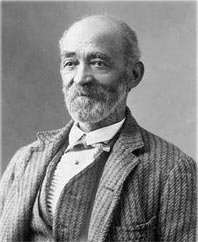Welcome to the Wakefield Doctrine (the theory of clarks, scotts and rogers)
The Six Sentence Story is a bloghop hosted by zoe. Each and every week she invites all those, so inclined, to write a story relating/related to a new prompt word. The stories are limited only by the number of sentences it has. Six. No more and no less. Otherwise it’s left to us, the writers, to decide what makes a story. And that’s where the fun is. The Six Sentence Story can be anything, fiction, autobiographical, non-fiction or any combination of all. It’s an opportunity to witness ideas gathering words and forming tales, that others can enjoy. As has happened before, this week I got well into Wednesday with the belief I knew exactly (well, sketchy-exactly) what my Six would be about. And then my clarklike nature exerted it’s power. One reference in a comment on ‘the Facebook’ lead to ‘the Civil War’ and then to Andersonville and then Elmira (both prison camps). But the idea still had not sunk it’s ink-stained teeth into me until I got to a reference to the above picture man. …it then wouldn’t let go.
….slip
Each morning that might slip from night’s tenebrous grasp, the sun would blaze over the clouds of mist that would, each summers day, rise from Foster’s Pond. Columns of new sunlight lightly balanced on the surface of the stagnant water, suggesting a delicate crystal formation; yet the stench that floated down over dry land, whispered of disease and death. Both the terrain and the Earth’s pull on all things conspired to draw the water that fell from the sky and the fluids that flowed from un-healed battle wounds, down from the hills and through the canvas ghettos that were home to thousands of Confederate soldiers.
In A-tents housing six or more prisoners, at least two would die of disease before bullet wounds or shattered limbs, the older prisoners (and increasingly the guards) called this place in rural New York State, ‘Helmira’ and would tell dark, cautionary tales as welcome to newly interred, “Ah swear it’s true. God may be white, but his angel of death is a old colored man who moves through the camp collectin the dead and when he passes, ain’t not a sign of boot pressed in the mud.”
In every culture, even one grounded in a makeshift prisoner-of-war camp, rise tales intended to give comfort; fighting the goblin-clutch of diarrhea and small pox, dying men would grasp the nearest arm and beg, “Jus promise that John W Jones will tend me when my time comes. I got no regrets, but that my mother won’t never know what became of me, Sexton Jones’ll make sure she knows her boy died brave.”
Source Credits: ‘The Elmira Prison Camp; a history of the military prison at Elmira NY’ by Clay W Holmes 1912 (p. 140-150)


 About clarkscottroger
About clarkscottroger
So good.
My great-grandfather was a prisoner in a union prison camp during the Civil War, he came home with maggots in his wound in his shoulder after he was exchanged. Good story. You always do it!
Not so much a history buff, but when I stumbled on the story of Elmira and then the people (there was a story about a prisoner who escaped because he resembled the young son of one of the guards (in age and looks) and took advantage of a day when the kid didn’t come in (he worked with his father) and the guy simply walked out the gate. cool
It’s horrible enough for them to have to risk their life in an actual war, but to be hindered with the unhealthy conditions as well is really sad. The loved ones have so much to endure, but I can’t imagine the pain they feel when they find out the death could have been prevented.
no, I agree it’s just astonishing the depths that men (and women) can push others down into without realizing that, in order to accomplish that, they themselves are nearly as deep in it as their victims.
Great story and beautifully written. Thanks for that little history insight!
ur welcome… interesting rabbit hole for me the other day
So much horror in war, you described the scenes well enough that i’m shivering.
totally agree
Brilliant… as always , Clark -the best being the emotions that this tragic episode evoked in the reader . Thanks.
thanks, Moon (it was already there, in the story that I stumbled onto)
Well crafted, intense 6 this week Mr. Farley.
Thankee
This is incredibly graphic. Uncomfortable to read but I’m so pleased I did.
Click to visit Keith’s Ramblings
Thanks, man.
Excellent, as always. I could hear and smell it all, as if I was right there in “Helmira.” Evocative six, but so sad. :-(
sad, tragic and so many other attributes that cling to the acts of man, like the leeches in ‘African Queen’
Very interesting. I clicked the link and read more about Mr. Jones – quite a guy.
I bet he was a least a little bit of a Roger (strong sense of how things should be).
I concur
Thanks for some education. This Yankee hadn’t even heard of Elmira, though have heard many times of the infamous Andersonville.
Neither was I.
I found myself with a need for a Civil War POW camp that wasn’t Andersonville, as, like you, I was aware of it and therefore, it would not have been as much ‘fun’ to use it for my Six.
Thank god for the virtual breadcrumbs and (the eternal thirst for new information that makes us clarks all (fill in your favorite endless, hopeless-only-because-we-have-allowed-a-certain-premise-to-be-established-as-a-need character from myth or legend). famous old not-overs-funny joke, ‘Why does the clark turn the page?” ‘To see what’s on the other side.”
ha
ha